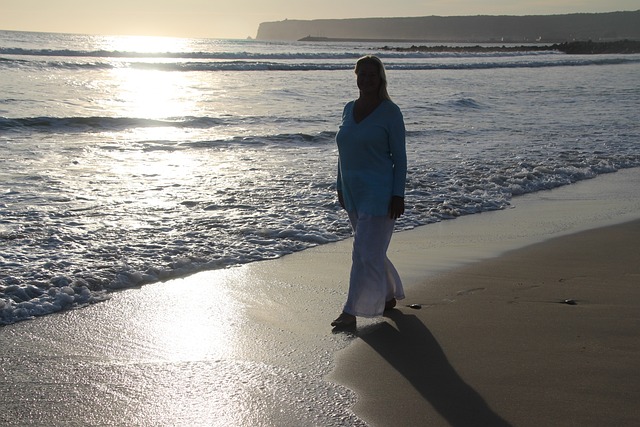Is suicide selfish? This a topic that often stirs deep emotions and triggers varied responses. For some, it’s a heartbreaking event, a loss of someone cherished. For others, it’s a complex moral puzzle, a complex web of ethics and personal choices. I didn’t write this article to provide definite answers but aims to shed light on two significant perspectives: the pain of those left behind and the moral implications surrounding suicide.
Is suicide selfish? With a topic as profound as this, it’s easy to get caught up in the technicalities and forget the human aspect. But here, we want to remember and acknowledge the pain, confusion, and quest for understanding. Continue reading, while I try to show you the different sides of the coin, and maybe, just maybe, inch a step closer to understanding.
1. The Personal Pain: Understanding the Bereaved’s Point of View
Imagine for a moment: You wake up one day to the news that someone you love, maybe a friend, a sibling, or even a parent, has chosen to end their life. The ground beneath you seems to shift, and a million questions flood your mind. Why? What could have been so bad? Did they think about us, the ones left behind? While these questions are valid and completely human to feel this way, it’s also crucial to remember that mental and emotional pain can sometimes blind people to the reality of their choices and the ripple effects they cause.
- The Immediate Emotional Aftermath Nothing truly prepares us for this kind of loss. No, not suicide! The feelings are intense, often a chaotic mix of abandonment, grief, guilt, and even anger. It’s like being trapped in a whirlwind of emotions, trying to grasp onto something, anything, to make sense of it all.
- The Long-Term Impact As days turn into weeks and weeks into months, the pain doesn’t just vanish. It morphs. There are days of profound sadness, moments of regret, and those ever-present “what ifs.” The longing to hear their voice just one more time, to ask why they felt there was no other way, becomes a constant companion.
- Perceiving it as a Choice For many left behind, one of the hardest things to come to terms with is the idea that their loved one ‘chose’ this. They wonder if their love and support were not enough, if they missed the signs, or if they could have done something, anything, to change the outcome.
2. The Moral Dilemma: Ethics and Life
Life is a gift as well as a mystery, a journey with its ups and downs. We all have our beliefs about it, influenced by our upbringing, culture, religion, and personal experiences. When it comes to ending one’s life, the moral landscape gets even more complex.
- The Sacredness of Life Many of us grew up hearing that life is sacred. Various religions and philosophical beliefs emphasize the importance of life, suggesting it’s a gift not to be taken lightly. From this viewpoint, the idea of someone ending their life can be challenging to grasp, let alone accept.
- Autonomy and Individual Rights On the flip side, there’s the belief in personal freedom. Some argue that, just as we have the right to live our lives the way we see fit, we should also have the autonomy to decide when and how it ends. It’s a perspective that champions individual choice, even if that choice is hard for others to understand.
- The Responsibility of Society Let’s not forget the bigger picture. We’re all part of a community, and as such, we share a collective responsibility. If someone feels so lost, so devoid of hope that they consider ending their life, doesn’t it also point to gaps in the way we, as a society, address mental health and provide support?
3. Expanding on the Sacredness of Life: A Christian Perspective
Christianity’s perspective on the sanctity of life is multifaceted, rooted in scripture, the teachings of Christ, and the belief in the inherent worth of every individual. While the topic of suicide is complex, the overarching message is one of love, hope, and the immeasurable value of each life in the eyes of God. Let’s look at the foundational beliefs, scriptures, and teachings that form the core of Christian thought on life and its intrinsic value
- Creation and the Image of God In the book of Genesis, it’s written that God created man and woman in His own image. This idea of being “imago Dei” or “in the image of God” is foundational to the Christian understanding of the inherent worth and dignity of every individual. If humans are created in the likeness of the Divine, then every life possesses a sacredness that is to be revered and protected.
- Jesus and His Teachings The life of Jesus Christ, as recorded in the New Testament, offers numerous insights into the value of life. Through parables like the Lost Sheep, Jesus emphasized the importance of every individual, suggesting that each person has worth in the eyes of God. Additionally, His acts of healing, compassion, and love underscored the significance of caring for the vulnerable, sick, and marginalized.
- The Commandments and Moral Living The Ten Commandments, especially the command “Thou shall not kill,” underscores the Christian emphasis on preserving life. While the commandment directly refers to the act of murder, many Christian theologians and thinkers have extrapolated it to emphasize the broader call to respect and uphold life in various circumstances.
- The Role of Hope and Redemption Central to Christian belief is the idea of redemption and hope. Even in moments of deep despair, Christianity teaches the idea of turning to God, seeking His guidance, and finding hope in the darkest of times. The story of Christ’s resurrection is a testament to the belief that even in the face of death, there’s hope for new beginnings and eternal life.
- Christian Views on Suicide Historically, Christianity has held varying views on suicide. While early church fathers like Augustine deemed it a sin, the modern Christian approach is more compassionate, emphasizing understanding and pastoral care for those grappling with such thoughts. Today, many Christian communities focus on offering support, counseling, and prayer for those in despair, emphasizing God’s unwavering love and the promise of hope.
4. The Middle Ground: Balancing Empathy with Ethics
Life isn’t always black and white. It’s painted in various shades of gray, and our understanding of suicide lies somewhere in those shades. While we hold on to various feelings and beliefs, it’s essential to find a balance between the pain of loss and the moral questions that arise.
- Recognizing the Profound Pain Behind Suicidal Thoughts Before we jump to conclusions or judgments, let’s pause for a moment. Imagine a pain so intense, so overwhelming that it blurs out everything else. For many who contemplate ending their lives, this pain becomes their sole reality. It’s not about wanting to die, but wanting the pain to stop.
- Acknowledging the Pain of Those Left Behind At the same time, we can’t ignore the heartbreak of those left behind. Their pain is real, and their feelings of confusion, abandonment, and anger are valid. It’s a tumultuous journey of seeking answers, of understanding, and sometimes, of forgiveness.
- Creating a Dialogue This might be the most crucial part. Instead of taking sides or getting lost in the web of moral dilemmas, what if we just talked? Shared our feelings, listened to others, and tried to understand their pain. An open dialogue can be healing. It can bridge gaps and foster understanding.
- Encouraging Compassion Maybe we won’t always agree. Maybe the questions will remain. But one thing we can all choose is compassion. For the person who felt there was no other way out. For the family trying to pick up the pieces. For ourselves, as we go through our feelings.
Conclusion
There’s one thing that becomes abundantly clear: the topic of “Is suicide selfish”, with its layers of emotions and ethical conundrums, is complex. Perhaps too complex for us to neatly categorize into ‘right’ or ‘wrong’, ‘selfish’ or ‘selfless’.
The emotions of those left behind are real and raw. Their grief, their search for answers, and their struggle to understand are a testament to the profound impact of losing a loved one in such a manner. But then, the anguish and despair of the person who felt ending their life was the only option is equally heart-wrenching.
So, instead of passing judgment or jumping to conclusions, maybe our focus should shift. Shift towards understanding, towards compassion, towards creating spaces where people feel heard and supported.
We all have a role to play, whether it’s lending an ear, offering a shoulder, or just being there. Because, at the heart of it all, is the collective human experience — of love, of loss, and of finding our way through the maze of life.




